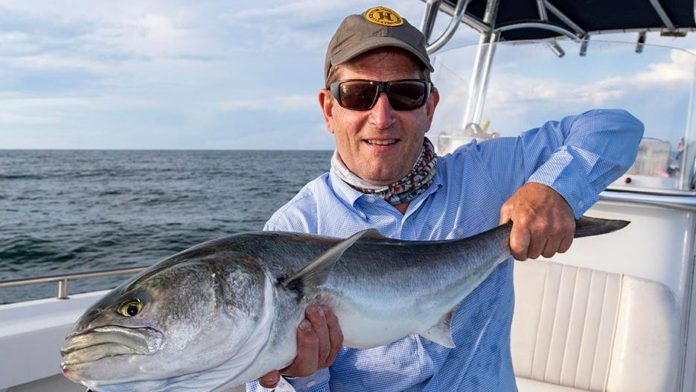Colin Ambrose
Colin Ambrose
The pandemic was a nightmare for most of us. For restauranteurs? It was like navigating a small boat through a hurricane. According to Nations Restaurants News, more than 10% of restaurants closed permanently in the US.
However, some ventures were able to not only survive the storm but thrive from the challenge: Estia’s Little Kitchen and its creative and multi-faceted owner Colin Ambrose is one of those stories.
Ambrose’s work ethic and willingness to pivot are part of his story. Growing up, Ambrose had family in New Jersey and Southern Wisconsin, and culinary curiosity was baked into his way of life. He recalls cooking with his grandmother using fresh ingredients from their garden.
In 1991, Ambrose purchased Estia’s restaurant in Amagansett, New York, for a down payment of $8,000. Since then, his career included opening six more restaurants, and he often spent his winters working under various acclaimed chefs in New York and Los Angeles.
His current restaurant Estia’s Little Kitchen, is in my hometown, Sag Harbor, New York. I am a big fan of his friendly staff and his breakfast menu that includes the best pancakes on the east end of Long Island.
Colin Ambrose at his restaurant in Sag Harbor, NY
Estia’s Little Kitchen
Here, Ambrose features Mexican cuisine, partly because so many of his staff members are Mexican, and it’s a shared love they can create together. Perhaps this willingness to understand and bond with his staff allowed Ambrose and his restaurants to navigate the pandemic with special grace compared to other establishments.
When the tight grasp of COVID-19 came into full effect, Ambrose streamlined his menu, hours and went from table service to take out only. This transition took seven days, and he did not lose any team members. Instead, he worked diligently to create a new way to experience Estia’s for the restaurant’s beloved patrons.
The pivot allowed Ambrose to cut costs but surprisingly resulted in higher gross sales. Moving to takeout orders effectively eliminated the lag times that come with traditional table dining service. Suddenly, Ambrose and his team were able to swiftly churn out enormous family orders to be enjoyed at home.
When the pressure hits, he seeks new energizing projects to revive, a strategy more leaders might consider. This is evident back in 2016 when he turned a situation of being overworked into an opportunity to do something he loved while promoting the same business that was overworking him.
During this time, Ambrose ran two restaurants, one in Connecticut and one in Sag Harbor, New York. Between working 12 hours per day on-site, he spent substantial time commuting on the LIE, a large, interstate highway running from Long Island into New York City.
“I had reached a point where I was bursting at the seams. I needed an outlet,” says Ambrose.
The solution became more than merely an outlet, blossoming into a riveting project called The American Rivers Tour. Ambrose embarked on a road trip to meet fellow chefs on the banks of rivers across the country to prepare authentic meals together.
Ambrose seamlessly promoted his restaurants back home and garnered attention from local and national media through the journey. Today, curious readers can visit the site to see all of the stops and download lip-smacking recipes like “Turkish lamb kebab with tomato chutney and Israeli couscous.”
During the pandemic, Ambrose found himself working as the lead order taker in the window of his restaurant for nearly a year, and, yet again, he needed an outlet to rejuvenate himself. Ambrose was inspired by New York State’s initiative to build the Empire State Trail System, a predominantly pedestrian and bike-friendly trail from Manhattan to Canada. He quickly created a challenge to spend every Tuesday when the restaurant was closed, biking a new portion of the 345-mile Trail. along he way he discover new restaurants and fly fishing spots.
This adventure is now a documentary film called Tuesdays on the Trail, which will soon go on a festival run.
Ambrose is a testament to the data that suggests self-compassion has an ROI. By taking care of himself and his staff, he beat the odds by expanding sales and retaining his great team during a pandemic.
Credit: Source link






























